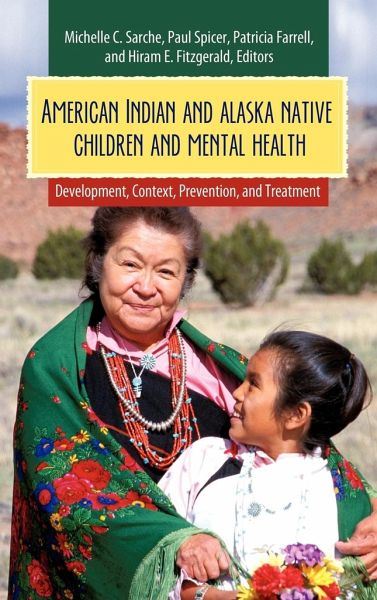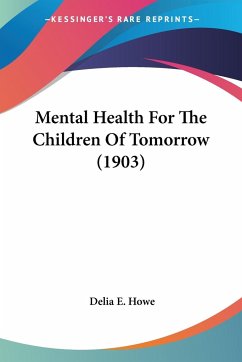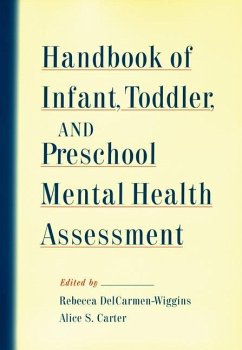
American Indian and Alaska Native Children and Mental Health
Development, Context, Prevention, and Treatment

PAYBACK Punkte
36 °P sammeln!
This unique book examines the physical, psychological, social, and environmental factors that support or undermine healthy development in American Indian children, including economics, biology, and public policies. The reasons for mental health issues among American Indian and Alaska Native children have not been well understood by investigators outside of tribal communities. Developing appropriate methodological approaches and evidence-based programs for helping these youths is an urgent priority in developmental science. This work must be done in ways that are cognizant of how the negative c...
This unique book examines the physical, psychological, social, and environmental factors that support or undermine healthy development in American Indian children, including economics, biology, and public policies. The reasons for mental health issues among American Indian and Alaska Native children have not been well understood by investigators outside of tribal communities. Developing appropriate methodological approaches and evidence-based programs for helping these youths is an urgent priority in developmental science. This work must be done in ways that are cognizant of how the negative consequences of colonization contribute to American Indian and Alaska Native tribal members' underutilization of mental health services, higher therapy dropout rates, and poor response to culturally insensitive treatment programs. This book examines the forces affecting psychological development and mental health in American Indian children today. Experts from leading universities discuss factors such as family conditions, economic status, and academic achievement, as well as political, social, national, and global influences, including racism. Specific attention is paid to topics such as the role of community in youth mental health issues, depression in American Indian parents, substance abuse and alcohol dependency, and the unique socioeconomic characteristics of this ethnic group.














